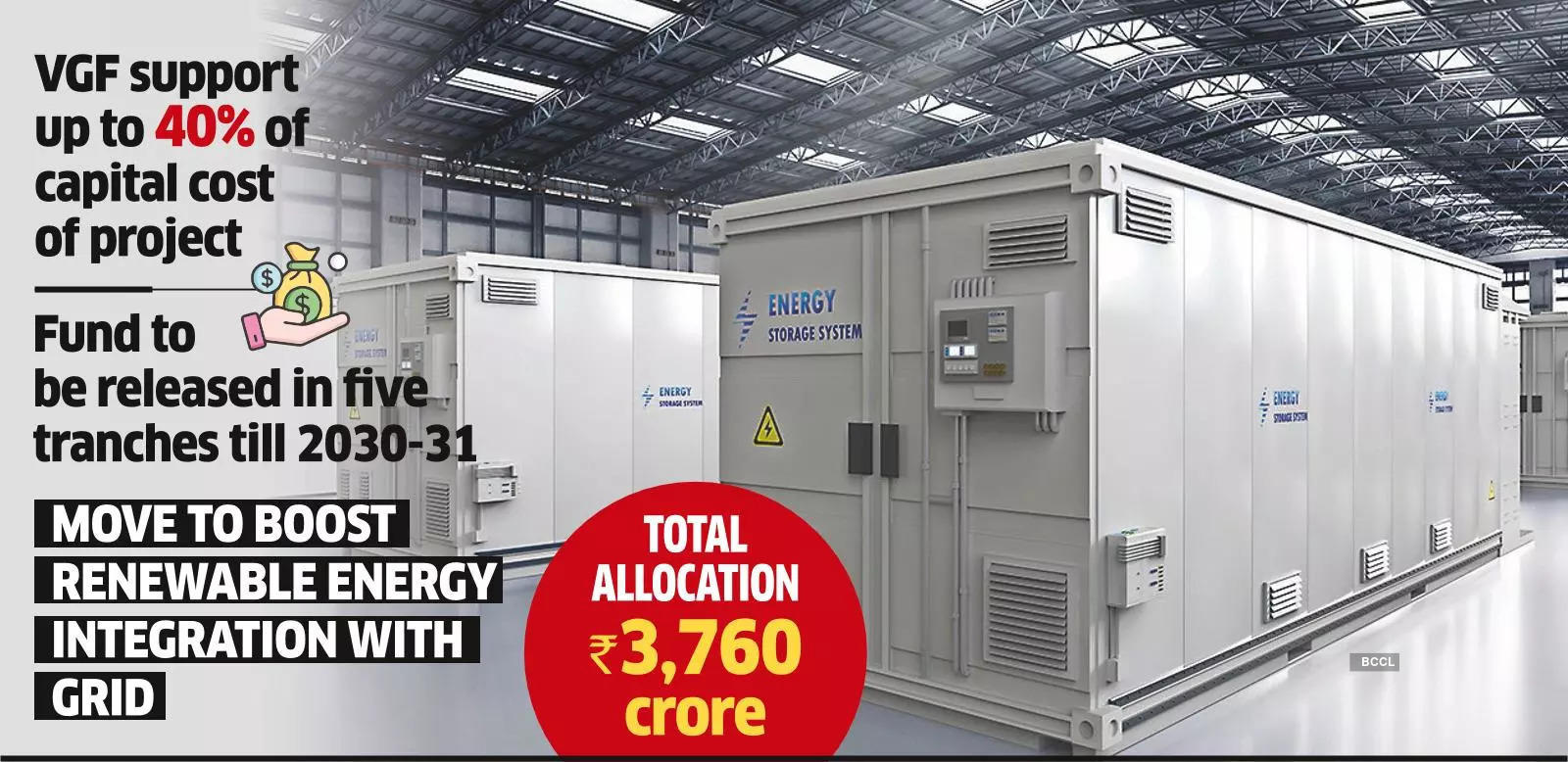The Union Cabinet has given its nod to a groundbreaking scheme aimed at bolstering India’s renewable energy sector by supporting the development of a 4 gigawatt (GW) battery energy storage system (BESS) by 2030-31. This scheme will provide viability gap funding (VGF) to make battery storage more economically viable, with a focus on enhancing the integration of solar and wind energy into the grid.
Scheme Overview:

Funding Allocation:
- The VGF scheme for BESS projects boasts an initial outlay of Rs 9,400 crore.
- It includes a budgetary grant of Rs 3,700 crore, showcasing a substantial government commitment to advancing energy storage technology.
Disbursement Strategy:
- The VGF will be disbursed in five tranches, strategically linked to the various stages of BESS project implementation.
Renewable Energy Focus:
- The primary objective of this scheme is to address the energy storage needs of the renewable energy sector, particularly solar and wind power.
Cost Reduction and Viability:
- The scheme aims to reduce the cost of battery storage systems and enhance their economic viability.
- The Levelized Cost of Storage (LCoS) target is set at a range of Rs 5.50-6.60 per kilowatt-hour (kWh), which will make stored renewable energy a cost-effective solution for managing peak power demand nationwide.
Beneficiaries:
- 85% of the BESS projects under this scheme will be allocated to power distribution companies (discoms).
- This allocation will facilitate the seamless integration of renewable energy into the electricity grid while minimizing wastage and optimizing transmission network utilization.
Competitive Selection:
- Developers for BESS projects will be chosen through a competitive bidding process, open to both public and private sector entities.
- This approach encourages healthy competition, fosters the growth of a robust BESS ecosystem, attracts significant investments, and creates opportunities for associated industries.
Find More News Related to Schemes & Committees



 Indian Olympic Medal Winners List Till N...
Indian Olympic Medal Winners List Till N...
 Who is the Inventor of the Gramophone?
Who is the Inventor of the Gramophone?
 HS Dhaliwal Appointed New DGP Of Andaman...
HS Dhaliwal Appointed New DGP Of Andaman...
